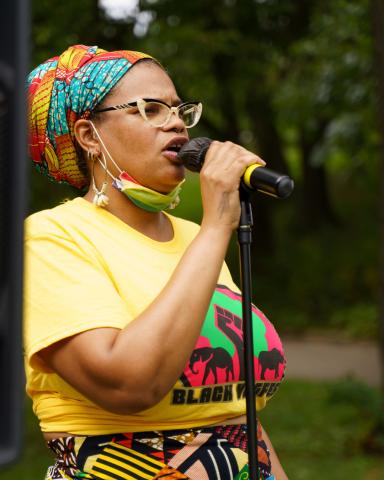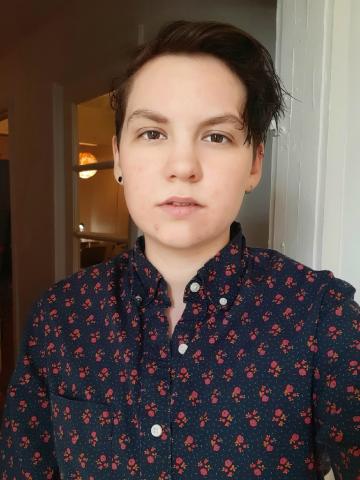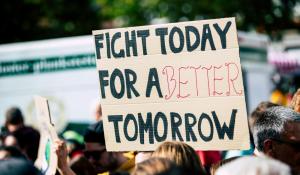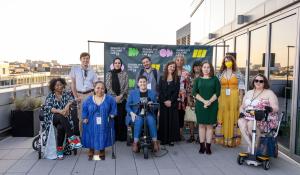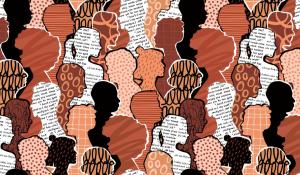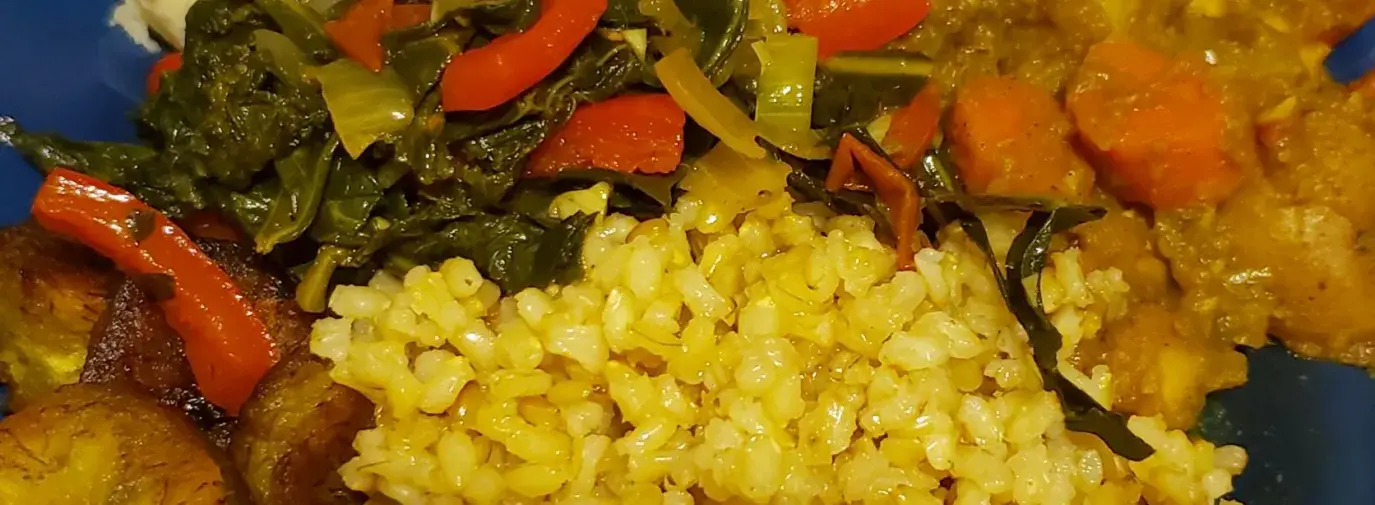
While there are different diets that reduce meat intake, from vegetarian to flexitarian, veganism has the lowest carbon footprint, and is about kindness to animals and the planet. Veganism is about refusing to eat, wear, or otherwise consume animal products. As a lifestyle that is about caring for others, why is it met with vitriol?
The loudest proponents of veganism have made the diet seem exclusionary—as if it’s impossible to care about the climate without being vegan. Even more exclusionary is the veganism commercialized by celebrities who sell an upscale vegan lifestyle and even weight-loss scheme. Often, these vegan influencers are white and do not acknowledge the cultures they are appropriating for their vegan recipes, nor do they acknowledge the damaging environmental impacts of trendy vegan foods—many mock meats contain genetically modified soy, which contributes to deforestation, habitat loss, and toxic pesticide use.
For the mainstream vegan movement to be more inclusive, it will need to recognize where it intersects with other issues—whether that’s the planet, animals, or marginalized communities—and help people understand that veganism is more than a diet, but a way of thinking that prioritizes liberation for people, animals, and the environment.
Beyond the Diet
LoriKim Alexander is a self-identified Black dyke vegan and organizer in New York City. Alexander’s vegan practice is about education and community, where she organizes with groups like Black VegFest, the North Bronx Collective, and The Cypher. She wants vegans of color and marginalized gender identities to be heard.
“We, Black, Indigenous and people of the global majority, have held this knowledge and influenced this work for generations,” Alexander says. “If we are truly dedicated to ending oppression of all oppressed beings on this planet, then there must come input from oppressed humans—Black, Indigenous, and people of the global majority, especially trans, non-binary and gender non-conforming people.”
For Alexander, inclusion is one part of the conversation; for inclusion to work, the delivery of a message must be carefully considered and culturally relevant.
Alexander worked on a mutual aid project in the Bronx neighborhood to feed predominantly Black and brown folks vegan, whole foods during the pandemic, as well as cultivate a forest fragment for nature-based learning. Through the project, Alexander can connect ideas like food justice with veganism and environmental stewardship.
This project captures her nonhuman-centered approach that prioritizes liberation for all beings—for Alexander, veganism is keeps marginalized humans and nonhuman animals at the front of her mind.
“To be truly vegan means that we look at the most sustainable, equitable, and careful ways of going about feeding ourselves and taking care of ourselves in the world,” she says.
Part of that is recognizing that industrial animal agriculture not only oppresses animals, but marginalized groups, too.
A Diet for the Planet Must Include its People
Going vegan can reduce the effects of the climate crisis—factory farms account for 37% of methane emissions—and veganism can also reduce the impact of pollution on marginalized communities. Environmental Working Group’s 2020 “Fields of Filth” report demonstrates that communities of color are still the most affected by pollution from factory farms—and farmworkers are exposed to diseases and pesticides at disproportionately high rates.
Initially, Z. Zane McNeill became a vegan at 14 for the animals, but their identity as a nonbinary vegan has helped them recognize how seemingly disparate social issues intertwine. McNeill is a co-editor of “Queer and Trans Voices: Achieving Liberation Through Consistent Anti-Oppression,” which unravels the deep connections between issues such as racism, transphobia, xenophobia, and animal agriculture. Alexander is also a contributor to the book and talks about the limitations of the word “inclusion” in the vegan movement.
McNeill notes how the vegan movement has prioritized animal rights without including Black and brown communities, which are oppressed under the same system.
Slaughterhouses are well-known for their dangerous working conditions. Workers are more than three times likely to be injured than in other industries. The workers—a third of whom are immigrants, a quarter whom are undocumented, and some whom are currently incarcerated—live in fear of deportation or punishment to report workplace and animal abuses. As undercover investigations into concentrated animal feed operations (CAFOs) are outlawed, the ability to reveal dangerous workplace conditions and inhumane animal treatment goes with it. It is the meat packing corporations that benefit the most from this silence.
It would make sense for vegan advocacy organizations and immigrant and worker rights organizations to work together to end these abuses for the collective liberation of both parties. Yet in 2019, 700 Latin American workers were arrested when US Immigration and Customs Enforcement (ICE) raided several chicken processing plants in Mississippi—the largest workplace raid to ever occur in a single state. Facility operators, employed by the wealthiest meat corporations in the US, complied with officers—and white-led vegan advocacy organizations remained mostly silent. Alexander says that Black- and Latinx-led vegan groups have been working on this for years now. It's time that white-led vegan organizations spoke up for Black, brown, and immigrant workers as well.
Human rights and animal rights groups will have to cultivate intersectional approaches to veganism in order to collaborate toward collective liberation, according to McNeill.
“In my perspective, you can’t fight for animal liberation without fighting for queer liberation, for justice for Black folks and for the environment, and for immigrants and for slaughterhouse workers,” McNeill says.
Intersectionality is Inclusivity
Contributors to McNeill’s book draw parallels between white supremacy and animal oppression. Leah Kirts writes that their uncle’s cruelty towards cows on his dairy farm mirrored his abuse towards the undocumented Mexican immigrants he employed. Reducing non-white humans and humans with marginalized gender identities to an “other” mirrors the behavior of “othering” animals.
For Alexander and McNeill, understanding veganism as an ideological framework is to recognize the many ways marginalized groups—both human and nonhuman—are oppressed by white supremacy. Whether fighting for food sovereignty, animal liberation, immigrant rights, LGBTQ+ rights, or environmental racism, it’s important to consider how these issues intersect to work towards solutions that don’t leave any one issue behind.
“A lot of [friends] have come to understand veganism as a politic,” says McNeill. “When they’re doing direct action work, it’s not always possible to eat plant-based, but they’re always fighting for animal liberation, as well as their work fighting pipelines—which has a direct impact on not just human communities and the environment, but also animal communities.”
Being generous with people is important to making veganism inclusive, says Alexander, who encourages welcoming imperfect progress.
“Recognizing that if someone isn’t vegan, that doesn’t mean they’ll never get there, or that they don’t have the capacity for information,” she says. “If we don’t uphold that folks can do it, then we’re going to miss them.”
Contact LoriKim Alexander at lorikim@email.com
Order a copy of Queer and Trans Voices: Achieving Liberation Through Consistent Anti-Oppression from Sanctuary Publishers

